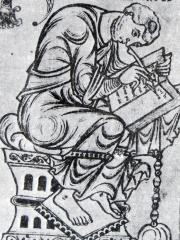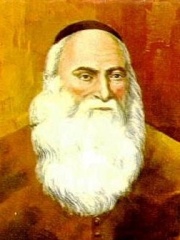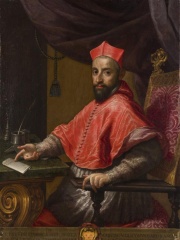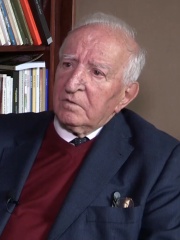



The Most Famous
PHILOSOPHERS from Portugal
This page contains a list of the greatest Portuguese Philosophers. The pantheon dataset contains 1,267 Philosophers, 5 of which were born in Portugal. This makes Portugal the birth place of the 36th most number of Philosophers behind Lebanon, and Latvia.
Top 5
The following people are considered by Pantheon to be the most legendary Portuguese Philosophers of all time. This list of famous Portuguese Philosophers is sorted by HPI (Historical Popularity Index), a metric that aggregates information on a biography's online popularity.

1. Orosius (375 - 420)
With an HPI of 73.52, Orosius is the most famous Portuguese Philosopher. His biography has been translated into 44 different languages on wikipedia.
Paulus Orosius (; born c. 375/385 – c. 420 AD), less often Paul Orosius in English, was a Roman priest, historian and theologian, and a student of Augustine of Hippo. It is possible that he was born in Bracara Augusta (now Braga, Portugal), then capital of the Roman province of Gallaecia, which would have been the capital of the Kingdom of the Suebi by his death. Although there are some questions regarding his biography, such as his exact date of birth, it is known that he was a person of some prestige from a cultural point of view, as he had contact with the greatest figures of his time such as Augustine of Hippo and Jerome of Stridon. In order to meet with them Orosius travelled to cities on the southern coast of the Mediterranean Sea, such as Hippo Regius, Alexandria, and Jerusalem. These journeys defined his life and intellectual output. Orosius did not just discuss theological matters with Augustine; he also collaborated with him on the book City of God. In addition, in 415 he was chosen to travel to Palestine in order to exchange information with other intellectuals. He was also able to participate in a Church Council meeting in Jerusalem on the same trip and he was entrusted with transporting the relics of Saint Stephen. The date of his death is also unclear, although it appears to have not been earlier than 418, when he finished one of his books, or later than 423. He wrote a total of three books, of which his most important is his Seven Books of History Against the Pagans (Latin: Historiarum Adversum Paganos Libri VII), considered to be one of the books with the greatest impact on historiography during the period between antiquity and the Middle Ages. Part of its importance comes from the fact that the author shows his historiographical methodology. The book is a historical narration focusing on the pagan peoples from the earliest time up until the time Orosius was alive. Orosius was a highly influential figure both for the dissemination of information (History Against the Pagans was one of the main sources of information regarding Antiquity that was used up to the Renaissance) and for rationalising the study of history (his methodology greatly influenced later historians).

2. Uriel da Costa (1585 - 1640)
With an HPI of 70.00, Uriel da Costa is the 2nd most famous Portuguese Philosopher. His biography has been translated into 32 different languages.
Uriel da Costa (Portuguese: [uɾiˈɛl dɐ ˈkɔʃtɐ]; also Acosta or d'Acosta; c. 1585 – April 1640) was a Portuguese Sephardi philosopher who was born a New Christian but returned to Judaism, whereupon he questioned the Catholic and rabbinic orthodoxies of his time. This led him into conflict with both Christian and Jewish institutions: his books were placed on the Index Librorum Prohibitorum and several Jewish authorities excommunicated him. His iconoclastic life culminated in suicide in c. 1640.

3. Isaac Abarbanel (1437 - 1508)
With an HPI of 69.94, Isaac Abarbanel is the 3rd most famous Portuguese Philosopher. His biography has been translated into 32 different languages.
Isaac ben Judah Abarbanel (Hebrew: יצחק בן יהודה אברבנאל; 1437–1508), commonly referred to as Abarbanel (Hebrew: אַבַּרבְּנְאֵל; also spelled Abravanel, Avravanel or Abrabanel), was a Portuguese Jewish statesman, philosopher, Bible commentator, and financier.

4. Pedro da Fonseca (1528 - 1599)
With an HPI of 59.04, Pedro da Fonseca is the 4th most famous Portuguese Philosopher. His biography has been translated into 15 different languages.
Pedro da Fonseca (Latin: Petrus Fonsecae; Proença-a-Nova, 1528 – Lisbon, 4 November 1599) was a Portuguese Jesuit philosopher and theologian. His work on logic and metaphysics made him known in his time as the Portuguese Aristotle; he projected the 'Cursus Conimbricensis' realized by Manuel de Góis and others.

5. Eduardo Lourenço (1923 - 2020)
With an HPI of 55.36, Eduardo Lourenço is the 5th most famous Portuguese Philosopher. His biography has been translated into 17 different languages.
Eduardo Lourenço de Faria (23 May 1923 – 1 December 2020), best known as Eduardo Lourenço, was a Portuguese essayist, professor, critic, philosopher and writer.
People
Pantheon has 5 people classified as Portuguese philosophers born between 375 and 1923. Of these 5, none of them are still alive today. The most famous deceased Portuguese philosophers include Orosius, Uriel da Costa, and Isaac Abarbanel.
Deceased Portuguese Philosophers
Go to all RankingsOrosius
375 - 420
HPI: 73.52
Uriel da Costa
1585 - 1640
HPI: 70.00
Isaac Abarbanel
1437 - 1508
HPI: 69.94
Pedro da Fonseca
1528 - 1599
HPI: 59.04
Eduardo Lourenço
1923 - 2020
HPI: 55.36

